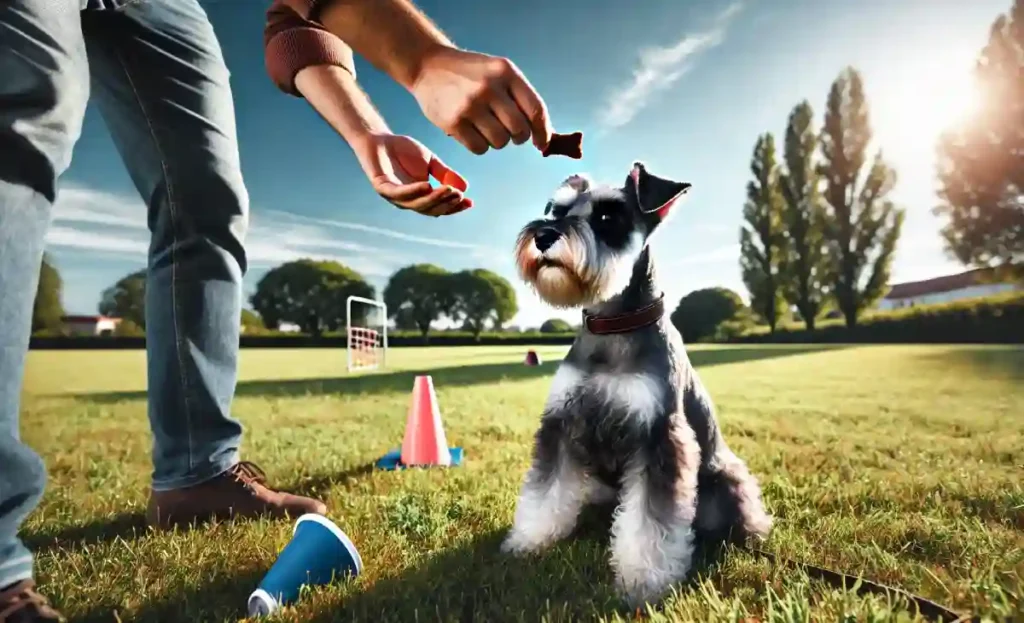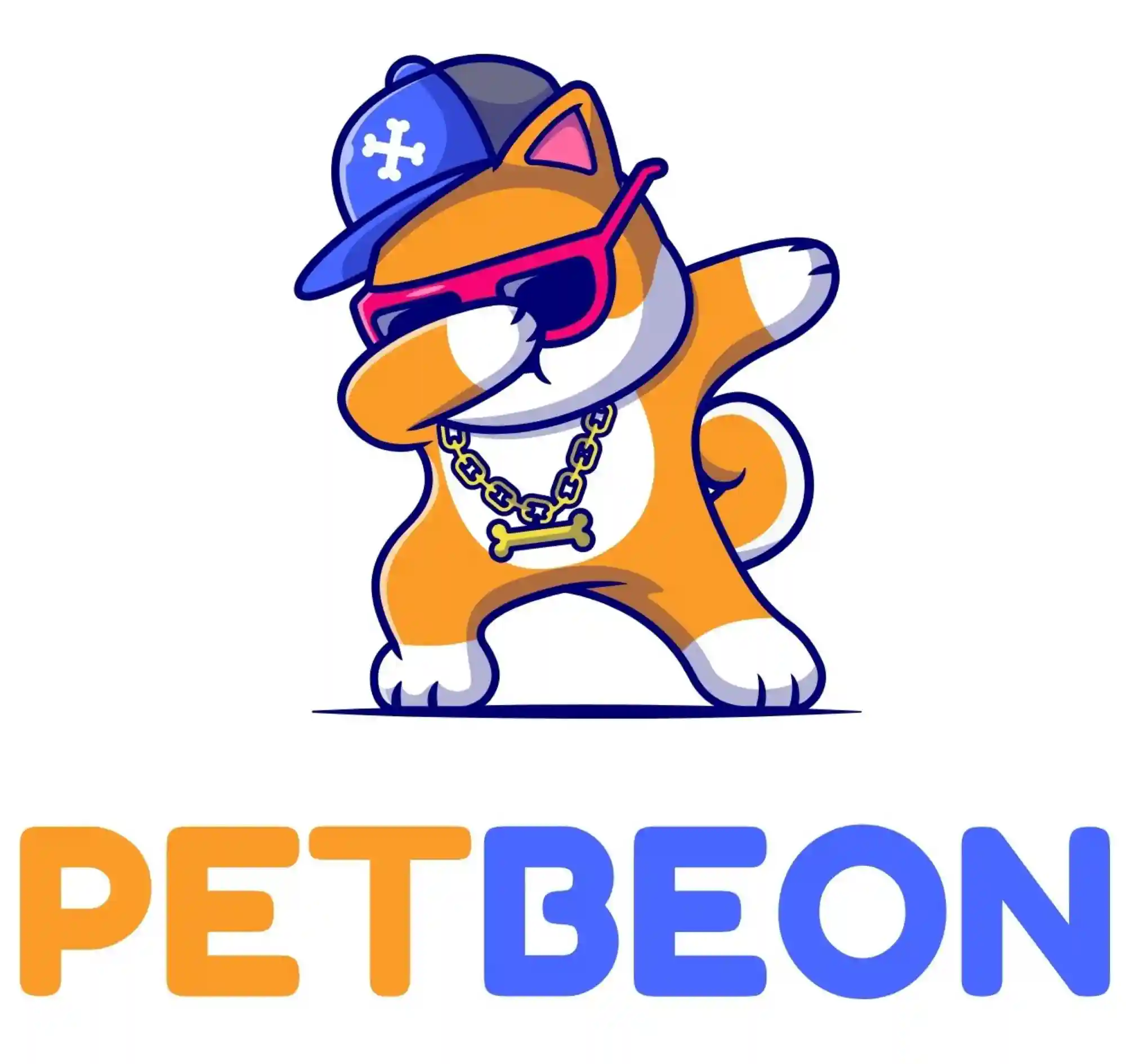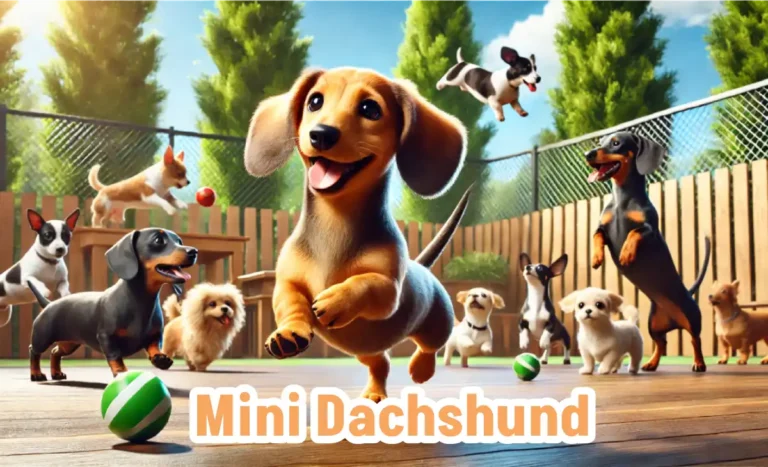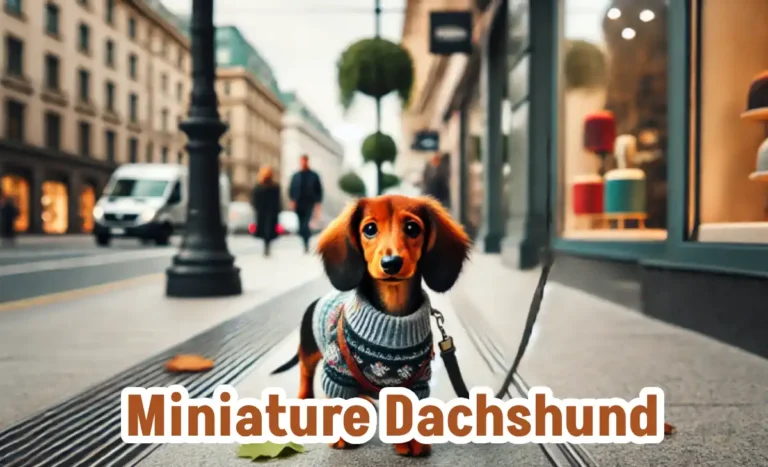Small in size but big in personality, the Miniature Schnauzer is a dog breed adored for its intelligence, loyalty, and energy. Originally bred in Germany as farm dogs to chase rats, these dogs have since become beloved family companions.
With their distinct appearance and adaptable nature, Miniature Schnauzers excel as pets for families, singles, or seniors. Whether you want an energetic playmate or a protective friend, this breed is a perfect choice.
Appearance and Physical Traits
Miniature Schnauzers stand out with their distinctive look. Their wiry coat, bushy eyebrows, and expressive beard give them a unique charm that attracts attention wherever they go. Despite their small stature, they carry themselves with confidence and a proud posture.
1. Size:
Miniature Schnauzers weigh between 11-20 pounds and grow to a height of 12-14 inches. Their compact size makes them ideal for apartments or small homes.
2. Coat and Colors:
They have a double coat with a rough, wiry outer layer. Common coat colors include salt and pepper, solid black, and white.
3. Features:
Their V-shaped ears, dark eyes, and rectangular muzzle are signature features of the breed. Their beard not only enhances their looks but also protects their muzzle during outdoor activities.
Their strong, muscular build allows them to be active and agile, making them suitable for many types of activities and lifestyles.
Temperament and Personality
Miniature Schnauzers have a lively and outgoing temperament that endears them to people of all ages. Their intelligence and curious nature make them quick learners and excellent companions.
Family-Friendly:
Miniature Schnauzers bond strongly with their families and thrive on attention. They enjoy playing with children and can adapt well to family dynamics.
Protective Instincts:
They serve as excellent watchdogs because of their alertness and keen hearing. They will bark to warn their owners of any unfamiliar sounds or visitors.
Social Behavior:
While they are friendly and playful with their family, they may appear cautious around strangers. Proper socialization from a young age helps them build confidence in new environments.
Their affectionate nature means they don’t like being left alone for long periods. Owners should plan to spend plenty of time engaging with them daily.
Miniature Schnauzer Care
Owning a Miniature Schnauzer means understanding their grooming, dietary, and activity needs. Proper care ensures they remain healthy, happy, and active.
Grooming:
Grooming plays a significant role in maintaining their coat and hygiene. Their wiry coat requires regular maintenance to stay clean and tangle-free.
- Brushing: Brush their coat at least three times a week to prevent mats. Regular brushing also helps distribute natural oils and keeps the coat healthy.
- Professional Grooming: Schedule professional grooming every 6-8 weeks. This includes trimming their coat, cleaning their ears, and maintaining their signature beard.
- Dental Care: Brush their teeth several times a week to reduce plaque buildup and maintain oral health.
Keeping their nails trimmed and cleaning their eyes and ears reduces the risk of infections or discomfort.
Diet and Nutrition:
Feeding your Miniature Schnauzer a balanced diet is essential for their energy levels and health. Their small but active bodies need nutrient-rich food.
- Meal Plans: Feed them two to three meals daily. Avoid free feeding to prevent overeating and weight gain.
- Quality Food: Choose high-quality commercial dog food that contains protein, fiber, and essential vitamins. Foods formulated for small breeds often meet their nutritional needs.
- Hydration: Ensure they always have access to fresh water, as it helps prevent health issues like bladder stones.
Occasional treats are fine but should not exceed 10% of their daily calorie intake. Consult your vet about the best diet for their specific needs.
Exercise Needs:
Miniature Schnauzers are energetic dogs that need regular exercise to stay fit and mentally stimulated. Their playful nature makes them eager participants in physical activities.
- Daily Walks: Aim for at least 30 minutes of walking each day. They enjoy exploring new environments and meeting other dogs.
- Playtime: Engage them with games like fetch, tug-of-war, or interactive toys that challenge their minds.
- Secure Yard: If you have a yard, ensure it is fenced securely. Miniature Schnauzers love running and playing outdoors.
Without enough exercise, they may develop behavioral problems such as chewing or excessive barking.
Training a Miniature Schnauzer

Training a Miniature Schnauzer is both rewarding and necessary. Their intelligence allows them to learn quickly, but they also have a stubborn streak that requires consistent guidance.
Socialization:
Expose them to different people, pets, and environments early. Socialization helps them grow into confident and well-behaved adults.
Positive Reinforcement:
Use treats, toys, and praise to reward good behavior during training. Avoid harsh methods, as they respond better to encouragement.
Basic Commands:
Teach commands like sit, stay, and come from a young age. Once they master these, introduce advanced tricks or agility training.
Consistency and patience are important. Short, frequent training sessions work better than long, repetitive ones.
Common Health Issues
Miniature Schnauzers are generally healthy, but they can develop certain breed-specific health problems. Regular vet checkups help identify and manage these issues early.
- Pancreatitis: Often triggered by high-fat diets, this condition causes digestive discomfort. Keep their diet low in fat to minimize the risk.
- Bladder Stones: Encourage them to drink plenty of water to reduce the likelihood of developing stones.
- Eye Problems: Check for conditions like cataracts or retinal atrophy, especially as they age.
- Skin Allergies: Some Miniature Schnauzers experience skin irritations caused by food or environmental factors.
Preventive care, such as vaccinations and parasite control, ensures they stay healthy and active throughout their lives.
Is a Miniature Schnauzer the Right Dog for You?
Miniature Schnauzers make excellent pets for many types of households. Their small size and adaptability suit both apartment living and larger homes. They require owners who can dedicate time to their grooming, exercise, and training needs.
If you want a dog that is loyal, intelligent, and full of life, the Miniature Schnauzer is a great choice. But, they may not be the best fit for people who spend long hours away from home. Their high energy and need for attention need an owner who can keep up with their lively personality.
FAQs
Do Miniature Schnauzers get along with children?
Yes, they are great with children. Their playful and gentle nature makes them suitable companions for kids.
Are Miniature Schnauzers easy to train?
They are intelligent and eager to learn, which makes training easier. Consistency and positive reinforcement are important.
How often do they need grooming?
They need grooming every 6-8 weeks to maintain their wiry coat and neat appearance.
Do Miniature Schnauzers shed?
They are low-shedding dogs, which makes them a good choice for allergy sufferers.
What is their average lifespan?
With proper care, Miniature Schnauzers live 12-15 years.
Final Words
The Miniature Schnauzer is a wonderful breed that brings energy and companionship into any home. Their distinct appearance, loyal personality, and adaptable nature make them a favorite among dog lovers. With proper care, training, and attention, these little dogs thrive and form strong bonds with their families.
If you’re ready to welcome a Miniature Schnauzer into your life, be prepared for years of love and fun with this charming breed.




